I do not believe the cliché that all religions are “basically the same”. Compare the Commandments of the six major religions. Why do they differ so vastly? What is the nature of each God? We will compare Buddhism, Hinduism, Islam, Egyptian Mystery School, Judaism, and Christianity. The differences are shocking. Each religion contributes a unique path to unity and healing mankind. However, there are some very big questions. Read below and make your own conclusions.
Humanity is on the awakening path to an inevitable expansion of consciousness. Everyone knows that different cultural and beliefs and upbringing will produce a unique perspective. What then, are the Commandments, or Rules to Live by for each major religion? What qualities are valued by each religion? No blame is intended. We are all linked in this human family, and we are responsible for it ALL. What rules do we live by? What truths should we uphold and cherish? What should we clear out of our collective subconscious memory? Comparing all the commandments and the words of each God, I see every religion has something special to offer in our healing. This article focuses on the contrasting Gods. It highlights major problems. Now is the time to eliminate every obstacle to peace and happiness. Fasten seatbelts.

Executive Summary:
- Ten Virtues of Buddhism: Buddhism is so many thousands of years old – we have no idea how old. The oldest Buddha is Tibetan 18,000 years ago. Buddha is not a God, but an “awakened one” who shows the way. A Buddhist practice is based on cultivating the mind in the Science and Universal Laws of Nature. The goal is enlightenment, which could be called ascension and cessation of the cycle of death and rebirth.
- Hinduism: Ten Yamas and Ten Niyamas (Do’s and Don’ts). At least 12,000 years old, maybe much more, the great Hindu civilization arose from the blue gods of Kashmir. These extraterrestrial beings taught the sacred language of Sanskrit and spawned the ancient texts of the Vedas, and the Puranas. The goal of Hinduism is Nirvana, or union with the Supreme God Shiva, who plays the flute and is sometimes the embodiment of Truth and Love. There are many lesser Gods. Nirvana marks the end of Samsara, the cycle of physical life and death.
- Egyptian: Ten Virtues of the Esoteric Mystery School. This ancient school of Hermes taught internal discipline and ascension intended to liberate the soul. The Supreme God was RA. The practice was to purge away the lower tendencies of a human being, to achieve the level of a God. During times of darkness and chaos in Egypt, these lost teachings were hidden away, many of them buried in desert caves.
- Muslim: The Commandments of Allah. Inspired by the great Prophet Mohammad in the 8th century CE, Islam teaches love, righteousness, and obedience to the Laws of the Supreme God Allah. The goal of Islam is to be one with Allah, to obey the laws, and to live an exemplary life of love and balance.
- Christianity & Judaism: Not Ten Commandments, Find 613 in the Old Testament. See below.
The God YHWH revealed the Commandments to Moses on Mount Sinai, in Exodus 20. Most of us know the first 10, however there are actually 613 Commandments in the Bible. For example, YHWH demands he be given all first born sons, sheep, oxen, gold, silver, gemstones, and sheep skins. What? This is a very high price for his protection in military exploits. YHWH says he is a “jealous god”. Yep. He threatens four generations of curses to any family who disobeys him. These scriptures are the roots of the Old Testament shared by Jewish Torah and Christian Bible. What kind of a God is this? I’m so shocked to read this. Are these commandments the work of a selfish powerful god or demiurge? An ET? Certainly NOT a Supreme God. Where is the Supreme God in Christianity and Judaism? - Christ Consciousness – The New Testament represents the teachings of Jesus Christ. Through the path of love, Christ offers personal ascension and hope for healing the world in Christ Consciousness.The goal is redemption and union with God the Father.
- How to Know God Directly. What is the True Nature of God? I suggest it is found in the ecstatic union of polarities, not organized religion. Call the Supreme Power by any name. Now is the time to embrace the Laws of Nature, to unite the dual extremes and live in cosmic bliss. To know God directly is ascension to freedom. Freedom is beyond words, beyond selfishness, beyond duality.
Although there are many similarities, all religions are NOT the same deep down. The most glaring differences are between East and West. Between a) the ancient Eastern religions (Buddhism, Hinduism, Egyptian) and b) newer Western Abrahamic faiths (Judaism, Christianity, Islam). The contrast between a) a meditative life toward enlightenment in the East vs. b) justice, judgment, and obedience represents a major difference.
Ultimately the highest path unites all Gods and all faiths. Because words, concepts, and dual polarities cannot not exist outside 3D. What did it mean in the Garden of Eden to “Know Good and Evil?” How can we truly ascend now if we have not yet cleared the past? I hope you’ll enjoy this scan of the different commandments. Let me know what you find revealing. As we embrace the diverse and contrasting roots of all religions, I believe we can come together in respect to heal all the challenges we face.

1. Buddhism – Ten Virtues to Enlightenment
The word Buddha means “awakened person” or “enlightened one”. There have been many Buddhas. The earliest known Buddha lived 18,000 years ago from the Tibetan Bon practice, however no one really knows how old is Buddhism. Centuries of cross cultural polinization between Tibet, Egypt, India, and Atlantis occurred in ancient times, but ancient floods wiped away much historical evidence.
Buddhism honors the Laws of Nature, the intrinsic harmony of Science, Medicine, Light, Sound, and Religion. We all know of Shakyamuni Buddha of the 6th century BCE. He discovered a path to personal freedom from the cycle of death and rebirth, thus achieving enlightenment. Buddhism offers appreciation of the Natural Laws.
“The Natural Law of Opposites
Vanquish anger by loving kindness,
Vanquish wrongdoing by goodness,
Vanquish selfishness by generosity,
Vanquish a liar by saying the truth.”
Shakyamuni Buddha, Dhammapada # 223
The “Ten Virtues” are to be cultivated on the path to enlightenment. There are many different versions, myriad sects and interpretations, making Buddhism a non-dogmatic, tolerant, and ever-evolving religion.
The Ten Virtues
3 Virtues of Body:
- To value life. To not kill. Do not take the life of a living being
- To not steal. Avoid taking what is not freely given to us.
- To avoid unwise and unkind sexual behavior.
4 Virtues of the Words:
- To tell the Truth, not Lie—deliberately deceive others.
- To avoid creating disharmony with speech.
- To avoid harsh speech.
- To refrain from Idle talk, Gossip.
3 Virtues of the Mind:
- To not covet.
- To avoid Ill will or maliciousness.
- To avoid wrong views.
The Buddha is not a God, but rather an “awakened” person who shows the way to freedom. Mental discipline, meditation, and renunciation of impermanence are all part of the practice. The goal is to achieve enlightenment, to be free of the cycle of life and rebirth. The path to enlightenment is open to all.
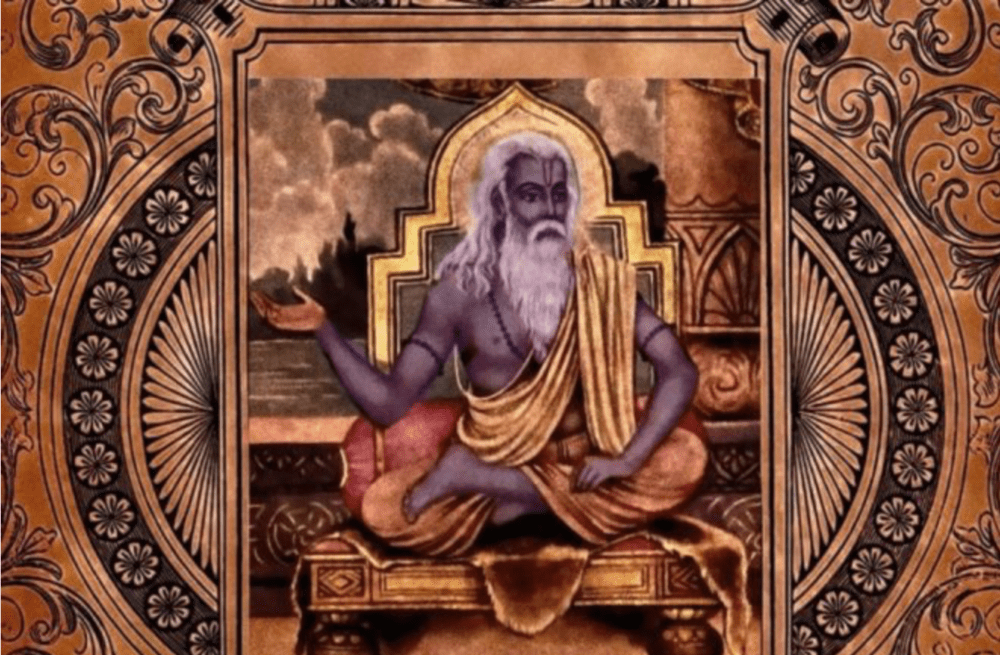
2. Hinduism – The Yamas and Niyamas, a Path to Perfection
Hinduism is the religion inspired by the sacred texts of the Vedas, the Puranas. the Mahabharata, and the Upanishads. This great civilization of the blue gods taught the sacred language of Sanskrit in Kashmir from about 12,000 BCE. The Supreme God is Shiva, who has many other names and aspects. And there are many lesser Gods. The goal is purification of the mind and body to achieve Nirvana, or ascension to higher levels of being, marking the end of Samsara, the cycle of physical life and death. Hinduism offers us rich meditative wisdom and many-thousand years history for a path to Nirvana, honoring the diverse nature of God.
The Ten Yamas and Ten Niyamas come from the Upanishads, ancient Vedic scriptures written in the 5th to 2nd century BCE.
“The Soul Never Dies.” Bhagavad Gita 2
‘Yama’ means ‘restraint’, ‘moral discipline’ or ‘moral vow’. The Yamas guide us in thoughts and actions regarding the world around us, and even how to act towards ourselves. ‘Niyama’ means ‘positive duties’ or ‘observances’. These are recommended habits for healthy living and ‘spiritual existence’.
- YAMA 1 — Ahimsa, Non-harming: Practice non-harming, not harming oneself and others by thought, word or deed, even in your dreams. This includes proper nutrition, emotions, thoughts, and actions
- YAMA 2 — Satya, Truthfulness: Adhere to truthfulness, not intending to deceive others in our thoughts, as well as our words and actions. Refraining from lying and betraying promises. Speak only that which is true, kind, helpful and necessary.
- YAMA 3 — Asteya, Nonstealing: Uphold the virtue of non-stealing, neither thieving, coveting nor failing to repay debt. Control your desires and live within your means. Do not use borrowed resources
- YAMA 4 — Brahmacharya, Divine Conduct: Practice divine conduct, controlling lust by remaining celibate when single and faithful in marriage.
- YAMA 5 — Kshama, Patience: Exercise patience, restraining intolerance with people and impatience with circumstances. Be agreeable. Let others behave according to their nature, without adjusting to you.
- YAMA 6 — Dhriti, Steadfastness: Foster steadfastness, overcoming non-perseverance, fear, indecision and changeableness. Achieve your goals with a prayer, purpose, plan, persistence, and push. Be firm in your decisions. Avoid sloth and procrastination.
- YAMA 7 — Daya, Compassion: Practice compassion, conquering callous, cruel and insensitive feelings toward all beings. See God everywhere. Be kind to people, animals, plants and the Earth itself. Forgive those who apologize and show true remorse.
- YAMA 8 — Arjava, Honesty: Maintain honesty, renouncing deception, and wrongdoing. Act honorably even in hard times.
- YAMA 9 — Mitahara, Moderate Appetite: Be moderate in appetite, neither eating too much nor too little. Enjoy fresh, wholesome foods that vitalize the body. Avoid junk food. Drink in moderation. Eat at regular times, only when hungry, at a moderate pace, never between meals, in a disturbed atmosphere or when upset. Follow a simple diet, avoiding rich or fancy fare. Some say a vegetarian diet is required, however this is not written in the Vedas.
- YAMA 10 — Shauca, Purity: Uphold the ethic of purity, avoiding impurity in mind, body, and speech. Maintain a clean, healthy body. Keep a pure, uncluttered home and workplace. Act virtuously.
NIYAMAS — The 10 Vedic Observances. Niyamas are about how we interact with ourselves, our internal world. Niyama is about self-regulation —
- NIYAMA 1 — Hri, Remorse: Allow yourself the expression of remorse, being modest and showing shame for misdeeds. Recognize your errors, confess, and make amends. Sincerely apologize to those hurt by your words or deeds. Resolve all contention before sleep. Seek out and correct your faults and bad habits.
- NIYAMA 2 — Santosha, Contentment: Nurture contentment, seeking joy and serenity in life. Be happy, smile and uplift others. Live in constant gratitude for your health, your friends and your belongings, Don’t complain about what you don’t possess. Identify with the eternal You, rather than mind, body, or emotions.
- NIYAMA 3 — Dana, Giving: Be generous to a fault, giving liberally without thought of reward. Make offerings to temples, ashrams, and spiritual organizations. Approach the temple with offerings.
- NIYAMA 4 — Astikya, Faith: Cultivate an unshakable faith. Believe firmly in God, guru, and your path to enlightenment. Trust in the words of the masters, the scriptures, and traditions. Practice devotion and sadhana to inspire experiences that build advanced faith.
- NIYAMA 5 — Ishvarapujana, Worship: Cultivate devotion through daily worship and meditation. Set aside one room of your home as God’s shrine. Offer fruit, flowers, or food daily. Learn a simple puja and the chants. Meditate after each puja. Visit your shrine before and after leaving the house. Worship in heartfelt devotion, clearing the inner channels to God, Gods, and guru so their grace flows toward you and loved ones.
- NIYAMA 6 — Siddhanta Shravana, Scriptural Listening: Eagerly hear the scriptures, study the teachings and listen to the wise of your lineage. Choose a guru, follow his/her path, and don’t waste time exploring other ways. Read, study and, above all, listen to readings and dissertations by which wisdom flows
- NIYAMA 7 — Mati, Cognition: Develop a spiritual will and intellect with your satguru’s guidance. Strive for knowledge of God, to awaken the light within. Discover the hidden lesson in each experience to develop a profound understanding of life and yourself.
- NIYAMA 8 — Vrata, Sacred Vows: Embrace religious vows, rules and observances and never waver in fulfilling them. Honor vows as spiritual contracts with your soul, your community, with God, Gods and guru.
- NIYAMA 9 — Japa, Recitation: Chant your holy mantra daily, reciting the sacred sound, word or phrase given by your guru. Bathe first, quiet the mind and concentrate fully to let japa harmonize, purify, and uplift you. Heed your instructions and chant the prescribed repetitions without fail. Live free of anger so that japa strengthens your higher nature.
- NIYAMA 10 — Tapas, Austerity: Practice austerity, serious disciplines, penance and sacrifice. Be ardent in worship, meditation, and pilgrimage. Atone for misdeeds through prayashchitta (penance), such as 108 prostrations or fasting. Perform self-denial, giving up cherished possessions, money or time.
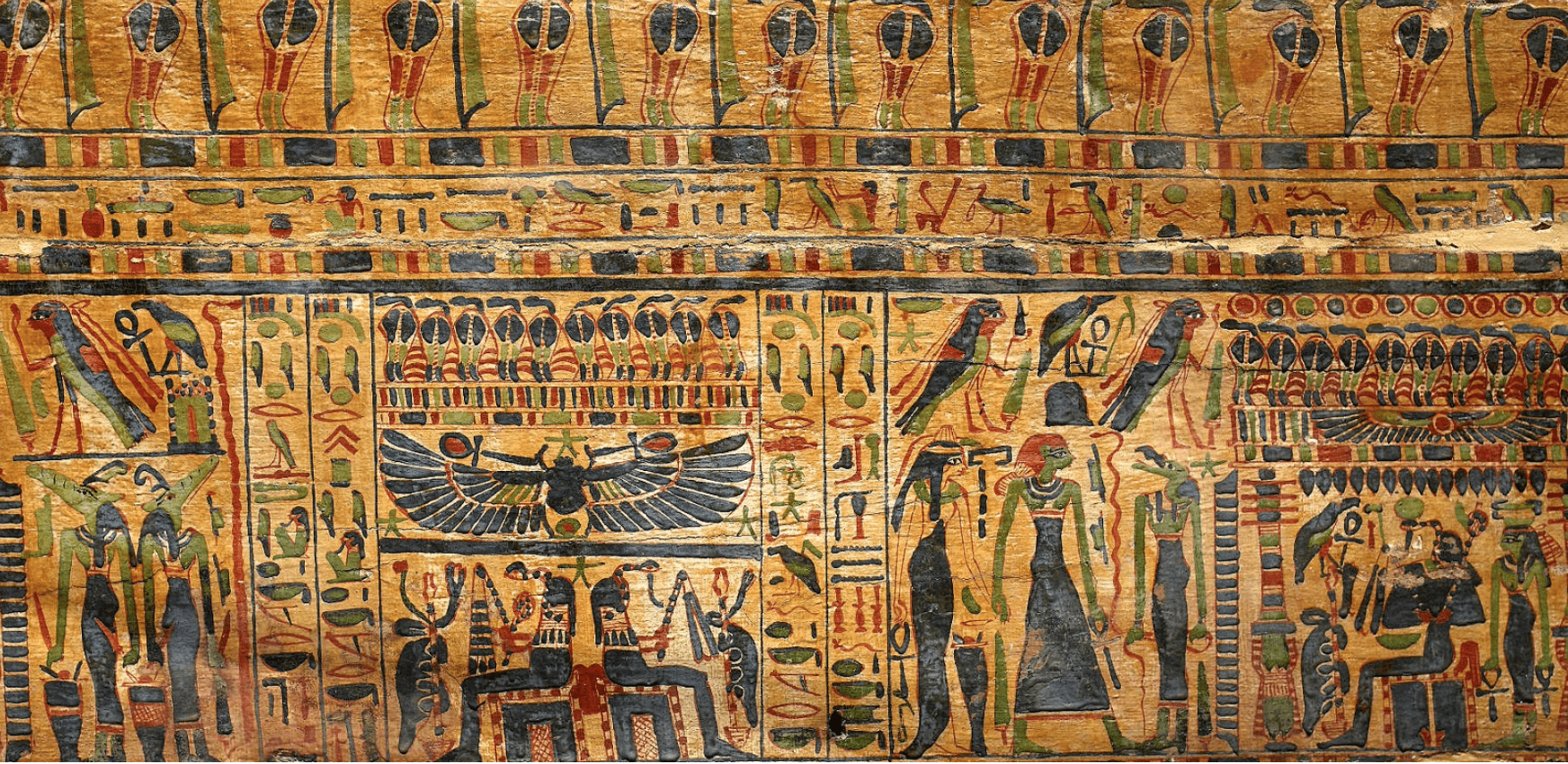
4. Egyptian Commandments – Preparation for Ascension
The Egyptian Kemetic Mystery school outlined Ten Virtues to cultivate.
Young initiates to the Egyptian Mystery school participated in discipline, intellectual exercises, and body renunciations with periodic tests and ordeals to determine their fitness to higher levels of initiation. The Egyptian School offers us utter silence and internal contemplation in harmony with the spheres.
“Everything flows out and in.
Everything has its tides.
All things rise and fall.
The pendulum swing appears in all things.
The measure of swing to the right is
the measure of swing to the left.”
The Kybalion Hermetic Texts
The Ten Virtues were considered a basic condition for happiness, and were intended to liberate the soul. By perfecting these qualities, the lower tendencies of a human being were purged away, and an initiate could become a living witness of the Divine. This school was
Egyptian higher education went far beyond the ten virtues. Study of Geometry, Arithmetic, Astrology, and Sound healing insured a harmonious, living practice until a person could become personally identified with God. At a certain point he or she would be able to hear and participate in the music of the spheres. The ten virtues were practical, measurable soul qualities leading to complete control of the passions. In the Egyptian Mysteries a neophyte was expected to manifest the following ten virtues:
- Control of thought.
- Control of actions.
- Steadfastness of purpose.
- Identity with spiritual life or the higher ideals.
- Evidence of having a mission in life.
- Evidence of a call to spiritual Orders or the Priesthood in the Mysteries
- Freedom from resentment when experiencing persecution and wrong.
- Confidence in the power of the Teacher.
- Confidence in one’s own ability to learn, callee Fidelity.
- Readiness for initiation.
This indicates the Egyptian practices were clearly oriented to refining the soul, to prepare an embodied person for ascension.

3. Muslim Commandments
These are only a portion of the Qur’anic commandments. Islam commands its followers to do and to avoid many things. Many things are prohibited because they contradict some of the doctrines in which a Moslem believes, or because they are immoral or unhealthy, or because they violate devotional duties. Islam offers us respect for our fellow man, passionate love for Allah, and powerful faith.
“When Allah is your strength, nothing can break you!” Qur’an
Allah is the Supreme God. The name is believed to stem from Al-ilāh, which means “the God”, related to El (Elohim) and Elah, the Hebrew-Aramaic words for God. These prohibitions may be regarded as Islamic commandments. Violation may constitute a major sin.
1. To ascribe to God a partner or associate: “Associate not any other god with the Almighty, lest thou sit down despised forsaken.” 17:22
2. To deny revelation of God to His prophets.
3. To deny any of the prophets who are recognized by the Qur’an, such as Jesus, Moses, Abraham, and Noah. The denial of the revelation or any of the recognized prophets is a denial of Islam.
4. To feel safe in opposition to God: “Are they secure against the plan of God? But none feels secure against the plan of God except the losing people.” 7:99
5. To lose hope in mercy of God: “…And despair not of the mercy of God. Surely none despairs of the mercy of God except the disbelieving people.” 12:87
6. To swear in the name of God falsely: “Hast thou not seen those who take for friends a people with whom God is wrathful? They are neither of you nor of them, and they swear falsely, while they know. God has prepared for them a severe chastisement. Evil indeed is what they do!” 58:14-15
7. To break a covenant deliberately: “And fulfill the covenant of God when you have made a covenant, and break not the oaths after making them fast, and you have, indeed, made God your surety. Surely God knows what you do.” 16:91
8. To kill a human being premeditatively. “And slay not the soul which God has forbidden except for the just cause…” 17:33 “Your lives and properties are sacred and inviolable amongst you, until you appear before your Lord…” said the Prophet.
9. To be traitor to the right cause of one’s own nation.
10. To help defeat it militarily by retreating at the battlefield when the nation is defending itself against aggression: “And whoso turns his back to them (the aggressors) on that day (of fight), unless maneuvering for battle or turning to join a company, he indeed incurs God’s wrath and his refuge is hell, and an evil destination it is.” 8:16
11. To steal.
12. To cheat in measuring or weighing in selling or purchasing: “Woe to the cheaters. Who when they take the measure (of their dues) from the people, take it fully, and when they measure out to others or weigh out for them they give less than is due.” 83:1-3
13. To use an orphan’s fund in a way that is not in his interest: “And draw not nigh to the orphan’s fund, except in a goodly way, till he attains his maturity, and fulfill the covenant; surely the covenant will be inquired to!” 17:34
14. To insult one’s own parent: “And thy Lord has decreed that ye worship none but Him, and do good to the parents. If one of them or both of them reach old age with thee, say not “Fie” to them, nor chide them, and speak to them kind words. And lower to them the wing of humility of mercy, and say: My Lord, have mercy on them as they brought me up (when I was) little.” 17:23-24
15. To commit adultery: “And go not nigh to fornication; surely it is an obscenity. And evil is the way.” 17:32
16. To scandalize people, specially women: “Those who love to see that scandal should circulate concerning the believers, will have a grievous chastisement in this world and the Hereafter, and God knows, while you know not.” 24:19
17. To spy on others for no purpose of protecting your nation or yourself.
18. To backbite others, exposing to those who do not know, some shameful doing: “…And spy not nor backbite each other…” 49:12
19. To gamble.
20. To drink intoxicants: “O you who believe, intoxicants and games of chance. . .are only an abomination, the devil’s work; so shun it, that you may succeed. The devil desires only to create enmity and hatred among you by means of intoxicants and games of chance, and to prevent you from the remembrance of God and from prayer. So will you obey this prohibition?” 5:93-94
21. To eat pork or any swine’s products.
22. To eat or drink blood. (This does not include transfusion of blood for medical necessity.)
23. To eat meat of an animal that dies by itself, or the meat of an animal on which the name of other than God is invoked when it is slain: “He has forbidden you only what dies of itself, and blood, and the flesh of swine, and that over which (a name) other than the name of God is invoked (when it is slaughtered)…” 2:173
24. To lie deliberately or testify falsely or falsify the word of God willingly: “Only they forge lies who believe not in the messages of God, and they are the liars.” 16:105
25. To conceal a testimony when called to testify in a litigation: “…And conceal not testimony. And whoever conceals it, his heart is surely sinful. And God knows what you do.” 2:283
26. To deliberately hinder a good cause.
27. To spread hatred by conveying to a person a bad word about him spoken by another person: “And obey not any mean swearer, defamer, going about with slander, hinderer of good, transgressing beyond the limits, sinful, ignoble, besides all that, notoriously mischievous…” 68:10-13
28. To violate the terms of a dead man’s will: “Then whoever changes it (the will) after he heard it, the sin of it is only upon those who change it. Surely God is Hearing, Knowing.” 2:181
29. To oppress the people.
30. To aid an oppressor. “…And let not hatred of a people because they hindered you from the Sacred Mosque incite you to make aggression. And help one another in righteousness and piety, and help not one another in sin and aggression. Surely God is severe in requiting (evil).” 5:9
31. To be proud, looking down on the people: “And turn not thy cheek in scorn towards people, nor go about in the land in insolence. Surely God loves not any self-conceited boaster.” 31:18
32. To be envious, wishing people ill: “Say: I seek refuge in the Lord of the dawn, From the evil of things created, …And from the evil of the envious when he envies.” 113:1-5
33. To antagonize a relative for no right cause: “Will you be making mischief in the land and cut off the ties of kinship if you come to power?” 47:22
34. To neglect any of the five daily prayers.
35. To break fasting in the days of Ramadan without a legitimate excuse.
36. To withhold the “Zakah” which is the share of the poor in the self-supporting person’s wealth. (Zakâh is an obligatory payment of 2.5% of one’s wealth to the needy if his/her wealth reaches and remains at a certain amount in a year.)
37. To neglect the duty of pilgrimage to Mecca which has to be done once in a life-time by every person who is physically and financially able to make it.
38. To neglect the duty of advising the people to do good and avoid evil when such an advice is needed and likely to be effective.
The last five are regarded as major sins, because prayer, fasting, paying Zakah, making pilgrimage and enjoining good and prohibiting evil are Qur’anic duties.
There are many other commandments parallel to the Hebrew Ten Commandments sprinkled throughout the Qur’an. Thus, Muslims are instructed to uphold the same teachings as Christians and Jews. Muslims see these as a point of departure for sharing Islam with other faiths, and working together to fulfill our ethical obligations with other human beings. Success comes from Allah, and Allah knows best.

5. Christian – Judaic Commandments
Look carefully. There are 613 Commandments in the Old Testament!
This is a shock for me. Most of us know the Ten Commandments revealed to Moses on Mount Sinai. However, many people do not know there are actually 613 commandments in the Bible. Many of them were revealed on Mount Sinai in Exodus. Here are the Exodus commandments below.
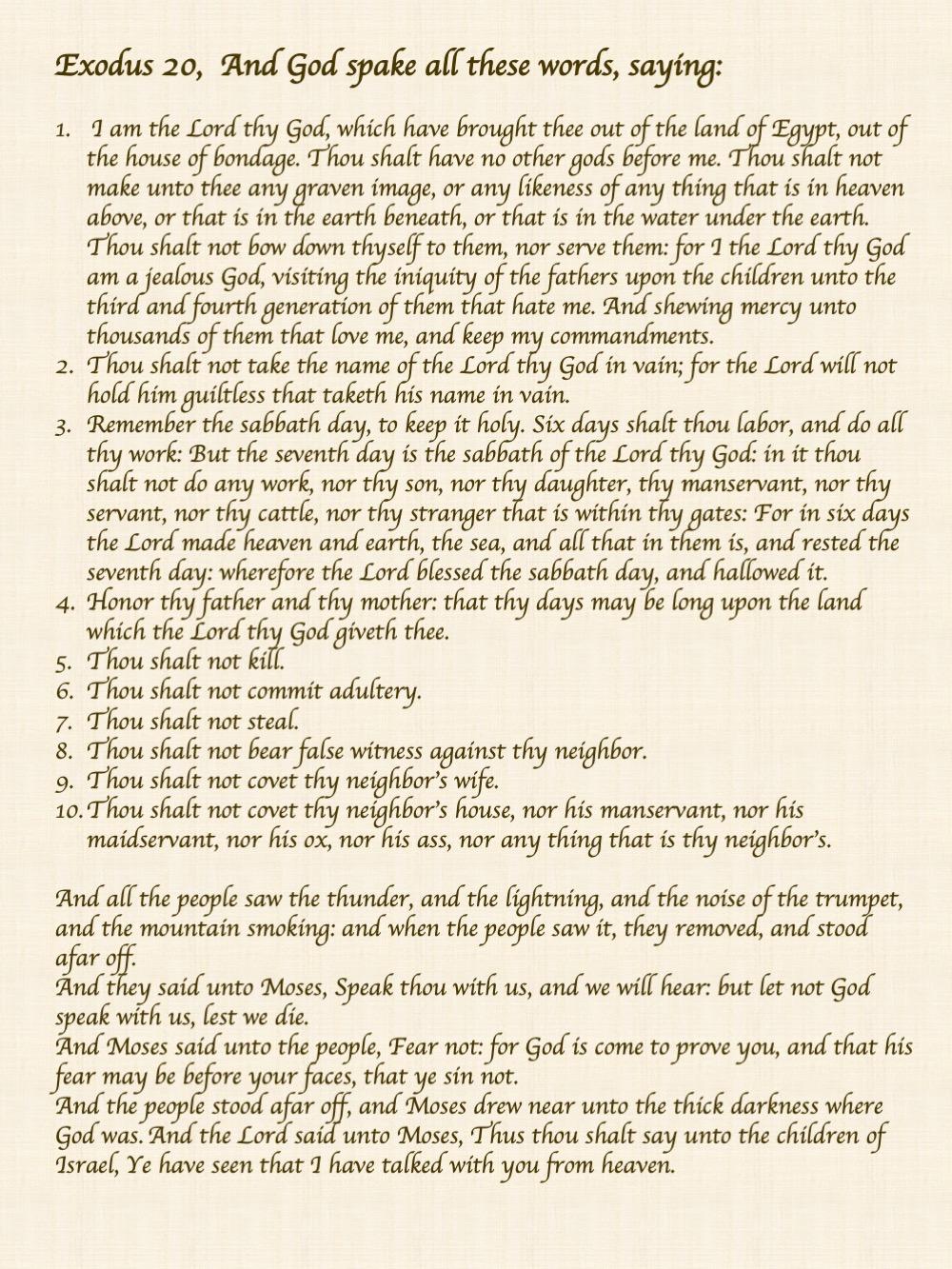
Exodus 20 reveals the first Ten Commandments. And there are more. Turn the page and we see a system of laws. Who was the God YHWH? Perhaps this God that assisted Moses to free his people from Egypt was not the Supreme God, but a powerful demiurge who helped them escape. YHWH was powerful, warrior-like, and demanding. He even required every first born son of their families, along with every newborn ox and sheep within seven days of birth, raising the uncomfortable question of ritual child sacrifice as offerings. Historical findings clearly indicate child sacrifice was common during certain Biblical periods in Canaan, Carthage, and Egypt. YHWH didn’t stop there. He also demanded gold, silver, precious stones. rich fabrics, and rams skins dyed red. See Exodus 25.2-7 red circled below.
Military exploits in the Bible were often preceded by vast offerings to YHWH, after which our people enjoyed victory. These commandments are not the words of a selfless spiritual being, but a very powerful self-serving ruler. Speaking as a product of the West, this is our history and we must deal with it.
Violence and bloodshed can be seen on many pages of the First Testament, which describe bloody wars, extermination, and suffering beyond belief. This is quite different from the sacred books of other religions. Throughout the Old Testament, even more commandments are given, bringing the total to 613 Commandments. This appears to be a legal system of complete, selfish control. There are 248 Positive, and 365 Negative guidelines from Yahweh in the First testament, for a total of 613 Commandments. Yep. Read them all here.
Violence in the Bible, the Commandments and the First Testament in general are reflected in the discord we find in the world. This has important implications regarding humanity’s shared journey on the planet Earth. It’s time to discover, clear it, and forgive ourselves. I’m not criticizing. I come from this line too.
It would be far too presumptuous to make generalizations for a tradition that was developing over thousands of years. Beliefs and practices evolved and changed. YHWH may have had a very positive influence to put an end to centuries of fighting, idolatry and worship of other pagan Gods. He demanded total loyalty. Perhaps that’s why he would not allow idols in temples.
“For I am a jealous God, visiting the iniquity of the fathers upon the children unto the third and fourth generation of them that hate me.” YHWH Exodus 20.1
The Bible mention reverence for a Supreme God “Elohim”. Is this the Supreme God? Why did a shift to monotheism accompany a merging of their names into one “Adonai” or Lord. The Supreme God may have been a composite of several ancient deities. It could have been the Hebrew “Elohim”, which is plural and non-gender specific. The Bible offers us a valuable history of our challenging past, which should be respected and studied allegorically. It offers humanity an invitation for a release of fear, for atonement, and something of a world-wide Yom Kippur.
What’s a Demiurge? Is it a “Lesser God that rules humans”
The word Demiurge, comes from Greek Dēmiourgos (“public worker”). It is a subordinate god who fashions and arranges the physical world to make it conform to some rational and eternal ideal. Plato adapted the term, which in ancient Greece had originally been the ordinary word for “craftsman,” or “artisan” (broadly interpreted to include not only manual workers but also heralds, soothsayers, and physicians), and which in the 5th century BC had come to designate certain magistrates or elected officials.
Oh dear, we have a problem here. We’re looking for the Supreme God in the Bible. Not a Demiurge. Where is he/she?
I see truth in Rabbi Hermann Cohen’s view of the Supreme God as “an archetype of morality that is also incomparable to anything in the world.” This is because God is “One,” unique and unlike anything else. One loves and worships God through living ethically and obeying His moral law: “Love of God is love of morality.”
Here are the other commandments by YHWH’s commandments, from the Bible Exodus 21-25 KJV.
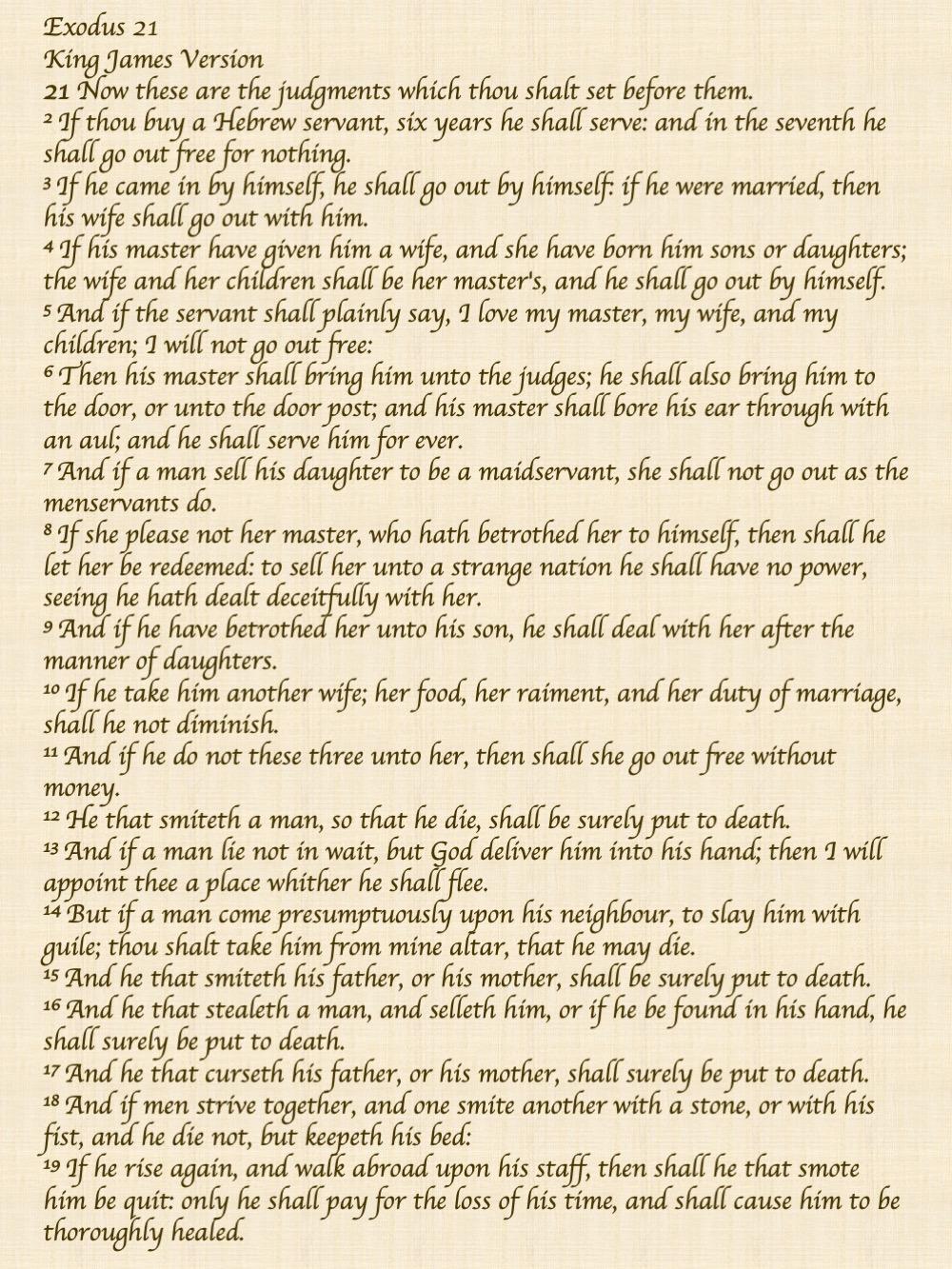
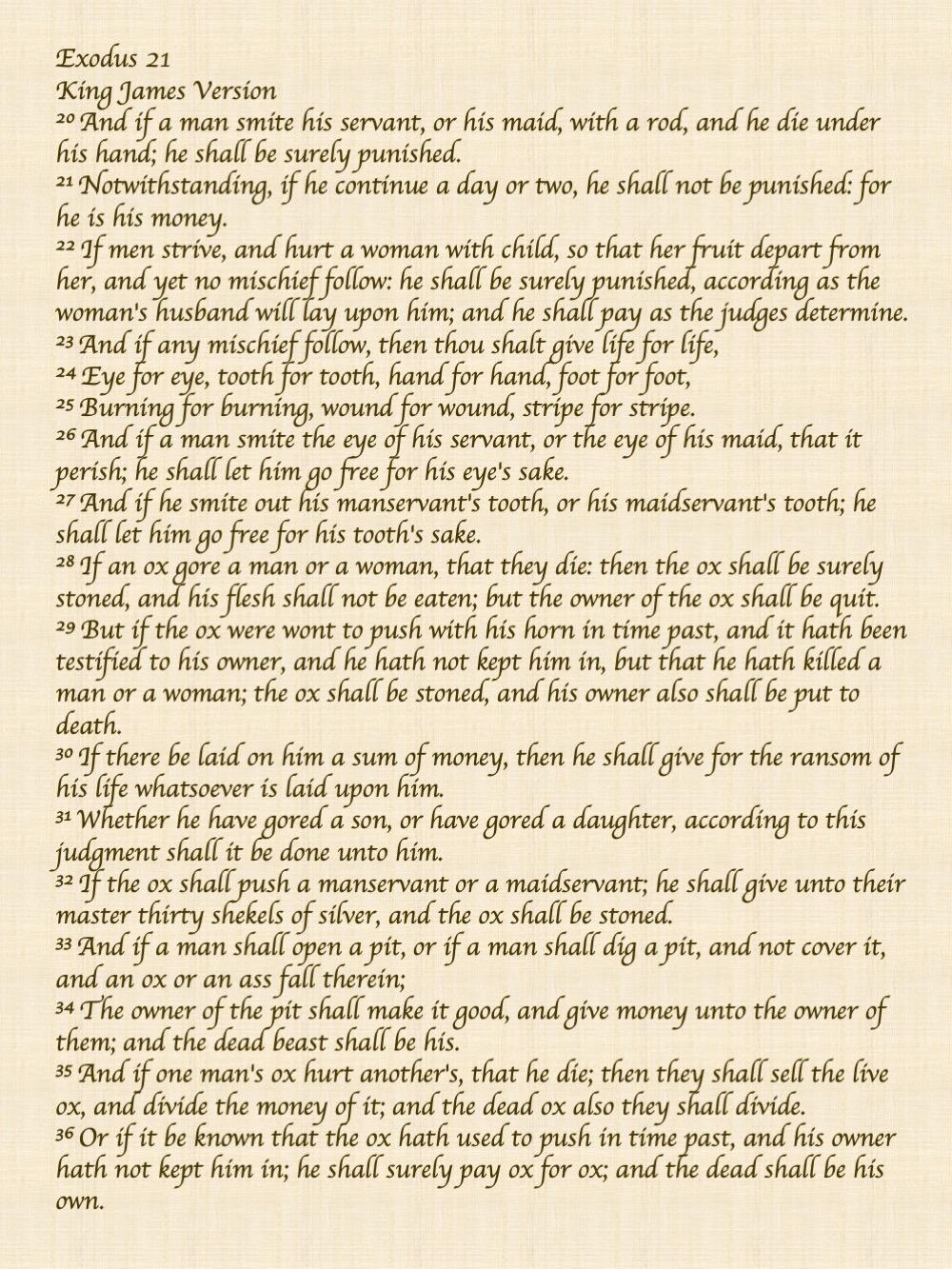
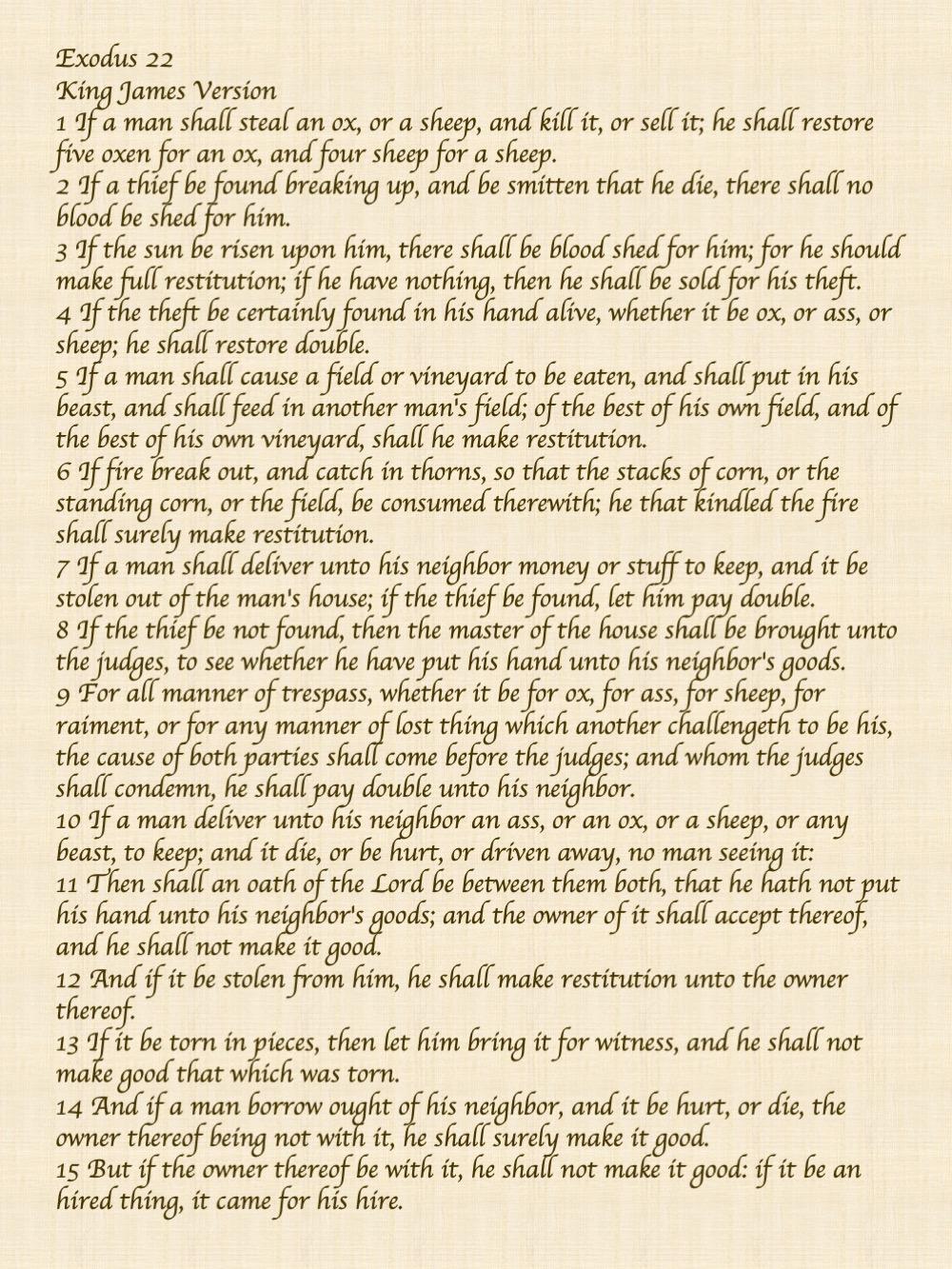
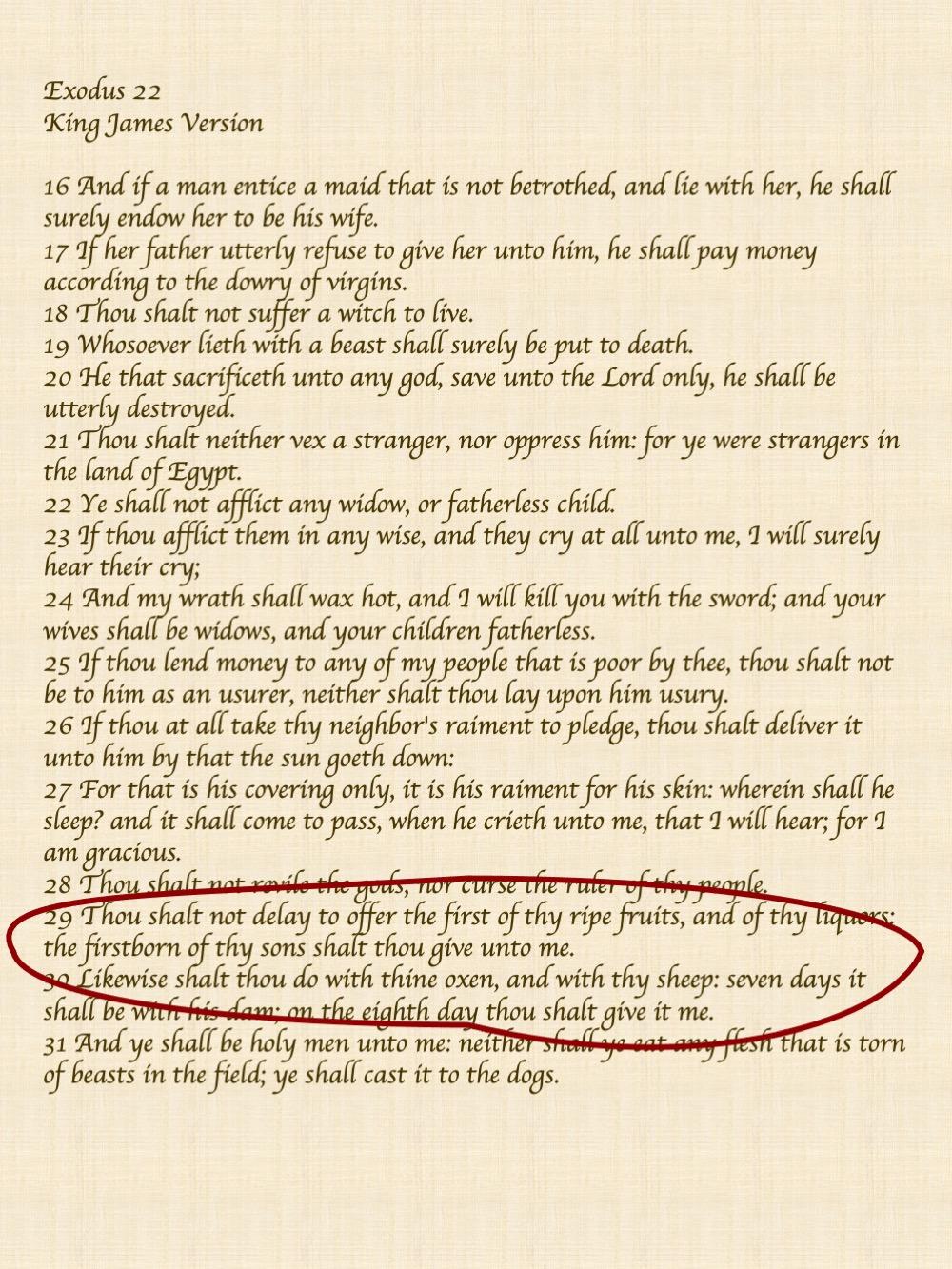
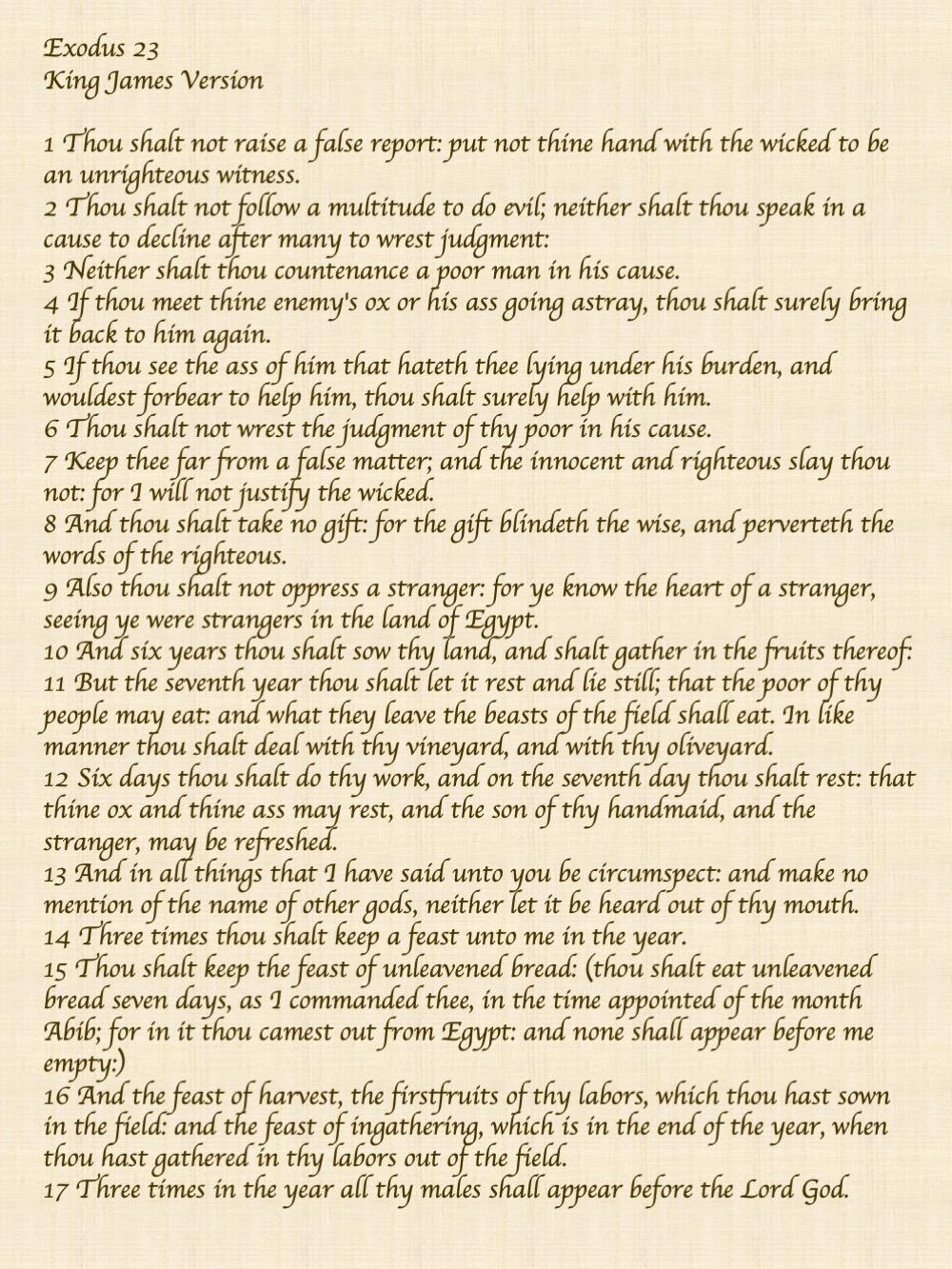
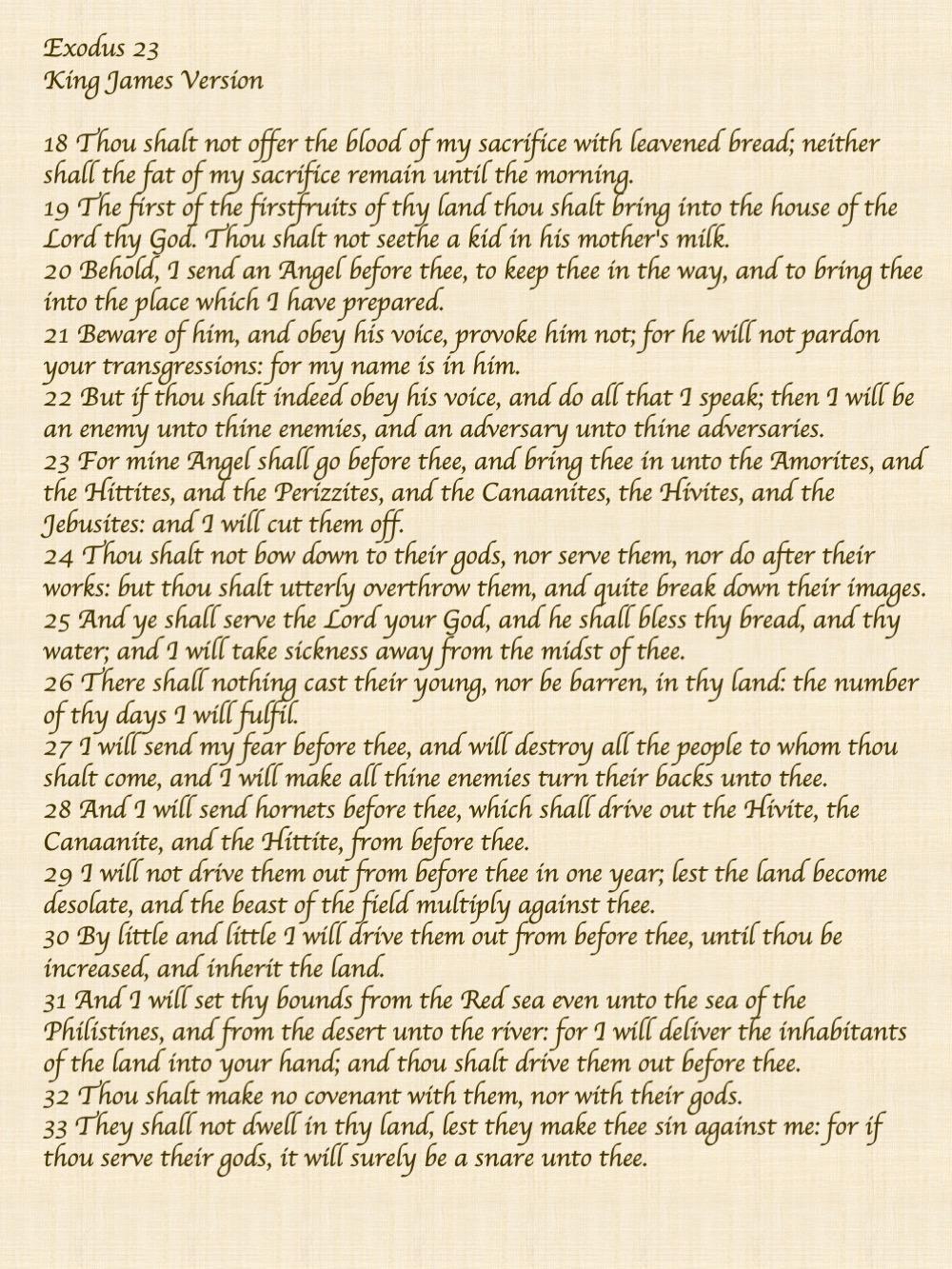
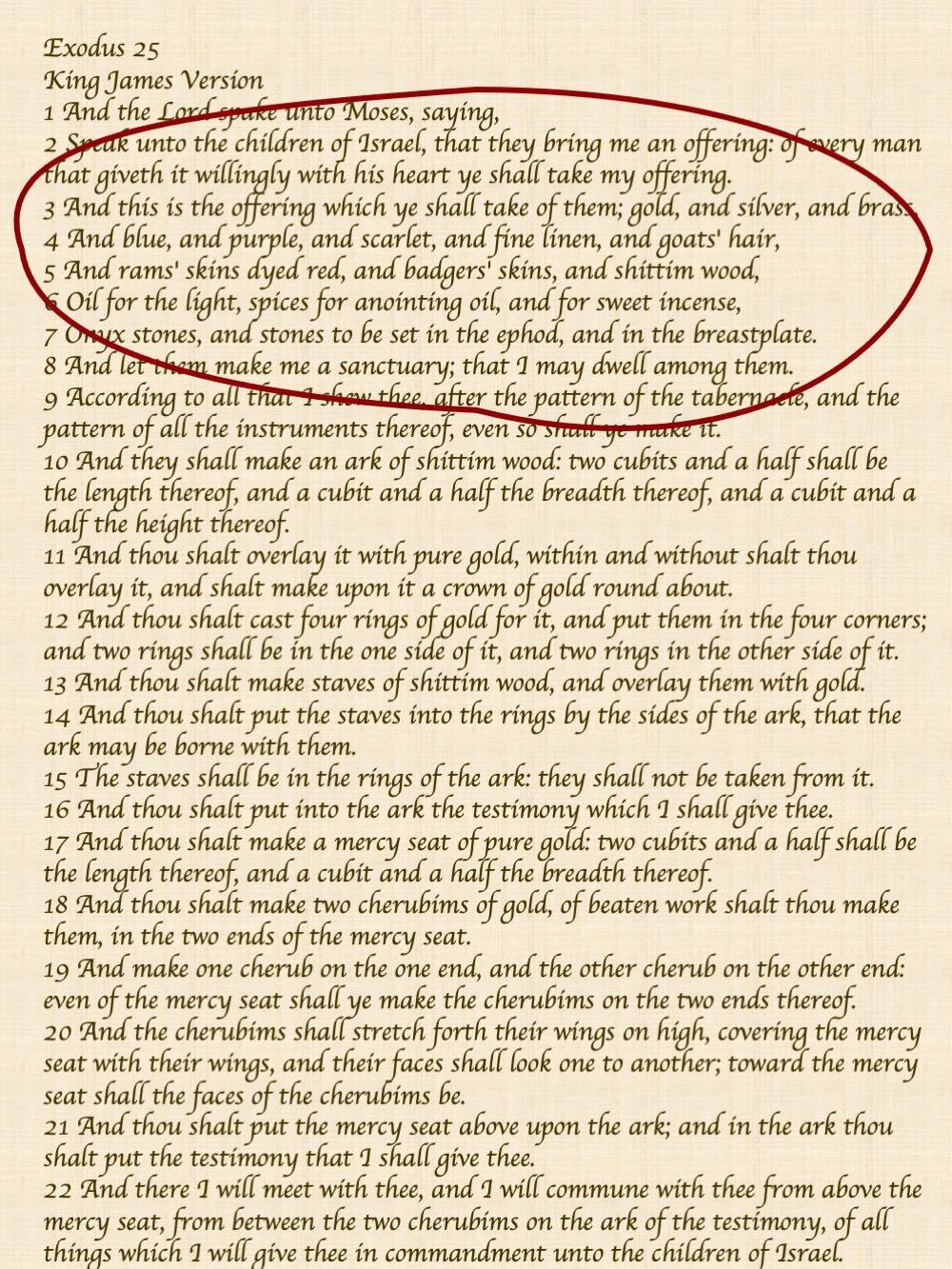
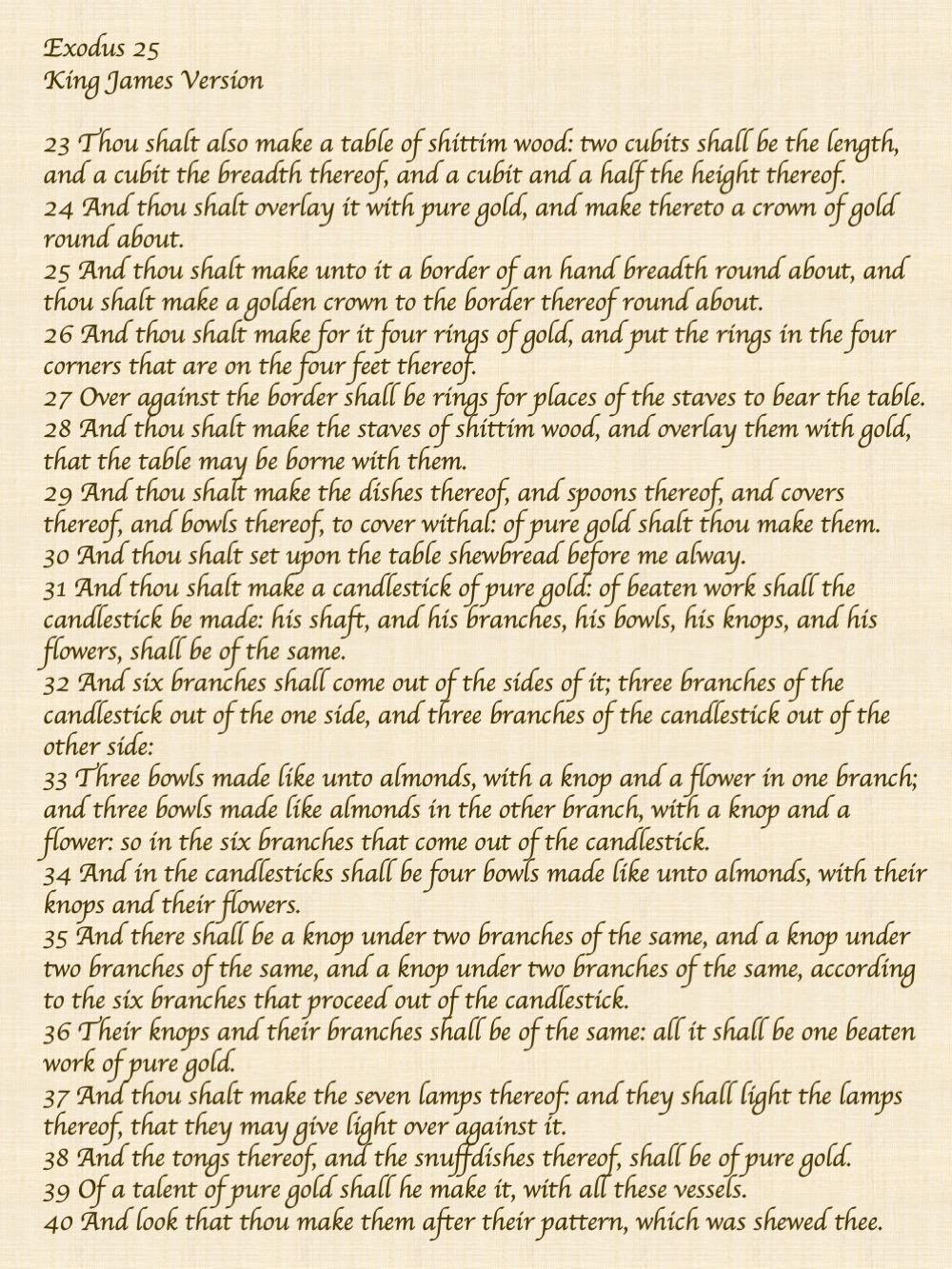

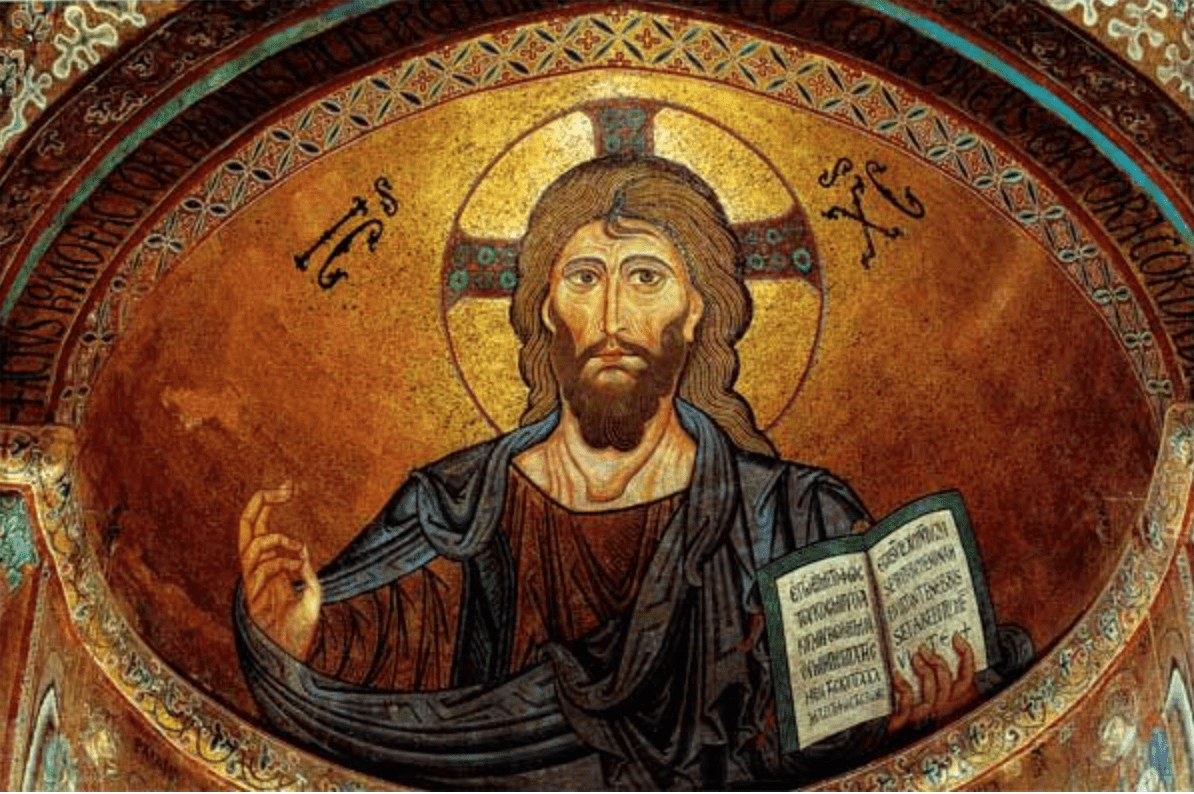
6. Christ Consciousness – Offers a Personal Path for Healing the World
Christians recognize Jesus as the savior and the divinely inspired Son of Almighty God the Father. Jesus offers us Christ Consciousness and the path of love.
“Love your neighbor as yourself.” – Jesus Christ
A Few Outstanding Commandments from Jesus Christ:
- Love God – Love the LORD your God with all your heart, with all your soul, and with all your mind.
- Love Each Other – A new commandment I give to you, that you love one another; as I have loved you, that you also love one another.
- Love Your Enemies – Love your enemies, bless them that curse you, do good to them that hate you, and pray for them which spitefully use you and persecute you.
- Control Anger – Do not be angry with your brother without a cause.
- Care with Words – Do not swear.
- Do not Judge Others – Judge not, that ye be not judged. Let he who is without sin cast the first stone.
- Ask – Ask and it shall be given you; seek, and ye shall find; knock, and it shall be opened unto you.
- Control Carnal Lust – Do not look at a woman to lust for her.
- On Divorce – Do not divorce except for sexual immorality.
- Seek Spirit Rebirth in God – Except a man be born of water and of the Spirit, he cannot enter into the kingdom of God. That which is born of the flesh is flesh; and that which is born of the Spirit is spirit. Marvel not that I said unto thee, Ye must be born again” (John 3:5–7).

7. How Can We Know God Directly?
A Union of Dual Polarities is Direct Access to the Supreme Intelligence. This is bliss!
I suggest that we are moving inevitably into a new spiritual era. Spiritual ascension is union with God, however you see that Supreme power. It is beyond 3D, beyond the mind, beyond words, and beyond any organized religion. Every culture in history has tried to express this union, in myriad images of cosmic wisdom seen above. This is where we are going as a species. There is a wonderful future in store for us. Each human being as a member of the sacred Adamic tribe, is free to worship, believe, find God. We each ascend in our personal path, in harmony and respect of the Earth and the Universal Laws of Nature.
As we spin into a Golden Age of joy and wisdom, each of us has his or her own way. No matter what name you give it, or how you visualize the image of God, we are going there. It’s a place of unity and enlightenment. When we embrace the dual extremes we finally understand Good-Evil, Yin-Yang, Male-Female, Positive-Negative, Day-Night. Polarity is the defining force within everything. By embracing the dual nature of all extremes, we find Oneness, Realization, and Ecstasy, on the Micro and Macro level. This also describes the miracle of procreation and sexual union. The fusion of polar opposites is bliss.
“Fusion of two poles means neutralizing their extreme energy charges, in a spark of creating a unified being, the synthesis of a new reality. This fusion is called bliss!” – Roberto Assagioli
All true religions and spiritual practices lead to this place. All effective techniques will take you there. Which is the best? You will find yours. It will entail relaxing the body, the breath, and the mind. It takes some kind of mental discipline and focus. Above all it requires overwhelming love and surrender to a higher power.
Perhaps this is what almost happened in the Garden of Eden. Adam and Eve discovered how to “Know Good and Evil” and to become “like Gods”. The union of the two vertical meridians or nadis in the body known as the Ida and Pingala wind upwards on the “tree of knowledge” i.e. the spinal column, to create Kundalini. Over time this practice brings a person to union with God, freedom, ascension, enlightenment. When Adam and Eve discovered the “Knowledge of Good and Evil” they were driven out of the garden because their controller didn’t want them to have the greatest prize – spiritual freedom. In this 21st century I believe we will move beyond them and discover our true spiritual path.
“It is at the time of dawn that we must commune with the Gods.” – Apollonius of Tyana (Probable author of Gospel of Paul)
Thanks for joining me!
Here’s our big Ganesh statue at Keramas Sacred River Village.
Be well! Sri Jana

About me:
I am Sri Jana, aka Jane Barthelemy, intuitive medium, channel, author, energy healer and a devout Christian, Buddhist, Hindu, Taoist. I was born in Minnesota, USA, baptized Catholic. As a I child questioned Original Sin and Catechism teachings that my Presbyterian mother could never go to Heaven. I have practiced Kundalini and Buddhist meditation for over 50 years. I have an MBA and worked as CFO of Rudi’s Bakery for 10 years. My life path followed many careers, as an opera primadonna in Italy, and owner of a Venetian glass jewelry company. Serious health challenges led me to teach Qigong, Taichi, and to write two healthy cookbooks: “Paleo Desserts” and “Good Morning Paleo”. My upcoming books include: “Heal Your Past Lives”, and “Buddha Speaks – Channeled Passages from the Master”. I live in Bali with my Bhutanese husband Lama D. We offer classes, retreats, healings, past life clearings, and kundalini meditations. My website is FiveSeasonsMedicine.com.
Suggested reading:
- Using the Law of Polarity for a Positive Mindset, https://fourthinitiate.com/using-law-polarity-positive-mindset/
- https://www.tibetanbuddhistaltar.org/ten-virtues-and-ten-non-virtues/
- https://in5d.com/relationship-light-dark-positive-negative-polarity/
- https://www.brambedkar.in/2021/01/28/10-paramitas-virtues-in-buddhism/
- http://rinpoche.com/teachings/conduct.pdf
- https://kentakepage.com/the-10-virtues-of-the-kemetic-ancient-egyptian-mystery-teachings/
- Stolen Legacy, by George G. M. James, [1954], at sacred-texts.com
- CHAPTER III: Greek Philosophy Was the Offspring of The Egyptian Mystery System, https://www.sacred-texts.com/afr/stle/stle07.htm
- http://www.itsuandi.org/itsui/downloads/Itsui_Materials/TEN%20VIRTUES%20A%20EGYPTIAN-KAMITES%20MYSTERY%20SYSTEM.pdf
- https://www.sacred-texts.com/afr/stle/stle07.htm
- Muslim Ten Commandments: https://www.abuaminaelias.com/ten-commandments-in-islam/
- https://www.ekhartyoga.com/articles/philosophy/the-yamas-and-niyamas
- https://seseni.wordpress.com/2008/04/13/the-ten-virtues/
- https://thubtenchodron.org/2009/09/harmful-actions/
- https://www.hinduwebsite.com/hinduism/h_ethics.asp
- The Law: All 613 Commandments! https://www.gospeloutreach.net/613laws.html
- 613 original commandments?, https://www.therefinersfire.org/original_commandments1.htm
- What is the significance of “firstborn” in the Bible?, https://bible.org/question/what-significance-“firstborn”-bible
- 613 LAWS of YAHWEH, https://thenewmaccabees.wordpress.com/613-laws-of-yahweh/
- The Unspoken Bible, CHILD SACRIFICE IN ANCIENT ISRAEL, https://usbible.com/Sacrifice/sacrifice_israel.htm
- Under Every Green Tree (Susan Ackerman)
- Late Carthaginian Child Sacrifice (Shelby Brown)
- Evolutionary Tanakh (Rick Hillegas, fogfall.com)
- Carthage, a History (Serge Lancel)
- Asherah and the Cult of Yahweh in Israel (Saul M. Olyan)
- The Early History of God: Yahweh and the other Deities in Ancient Israel (Mark Smith)
- Ruling Elite’s Pedophile Bloodlust for Children: From Antiquity to Today Many of the planetary, https://hnewswire.com/ruling-elites-pedophile-bloodlust-for-children-from-antiquity-to-today/
- https://biblearchaeology.org/images/Child-Sacrifice-and-Abortion/4—Canaanite-Child-Sacrifice—Smith-90-125.pdf
- A Choice of the Many Cruelties in the Bible, http://www.christian-reincarnation.com/Atroc.htm
- Kooks and Quacks of the Roman Empire, https://infidels.org/library/modern/richard_carrier/kooks.html
- Union of Opposites, https://kennethsorensen.dk/en/the-balancing-and-synthesis-of-the-opposites-by-roberto-assagioli/


